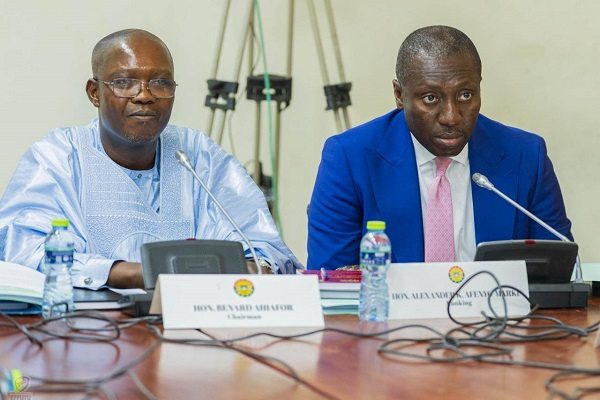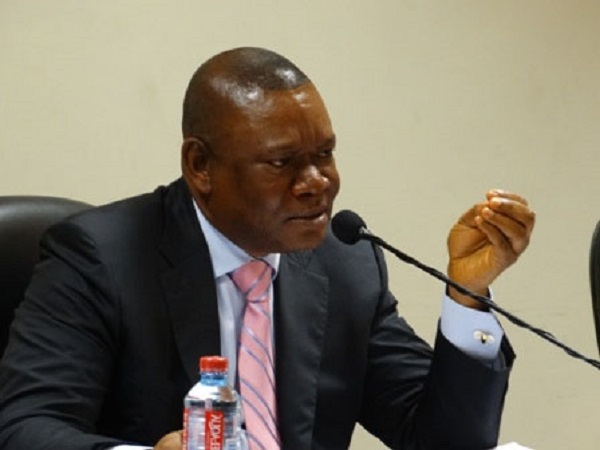Choice of school implies acceptance of rules - Justice Amaleboba - Graphic Online
In the view of the 52-year-old Appeals Court Judge, students who knowingly apply for and accept admission to religious institutions must also conform to the acceptable form of worship in those institutions, rather than viewing it as a violation of rights or an act of compulsion.
She said this in response to a question posed to her by the Minority Leader in Parliament and Ranking Member of the Appointments Committee, Alexander Kwamina Afenyo-Markin, on the balancing of constitutional provisions on freedom of religion with institutional rules in faith-based public schools.
Justice Amaleboba stressed that although rights were fundamental, they were not absolute, “and every right has its limitation, including being limited by the rights of others and the public interest.”
Making specific reference to the situation as pertained in Catholic schools, she said once individuals were informed of the school’s religious requirements and chose to attend, they ought to play by the regulations in that institution.
“If you are in a Catholic school, having chosen a Catholic school, knowing it is a Catholic school and the code of conduct requires that you do certain things and you were informed prior to it and you still chose to attend, then to me it will mean that is not compulsion,” she stated.
President John Dramani Mahama appointed Justice Amaleboba alongside six others to serve on the apex court, subject to approval by the House.
Appointed to the Court of Appeal in 2022, Justice Amaleboba sits on the Koforidua Panel, and occasionally in Accra.
Prior to her tenure in the Court of Appeal, she was a High Court Judge.
Justice Amaleboba has been involved in a number of high-profile cases, including the three-member panel presiding over a famous coup plot case.
She has expertise in areas such as family law, land law, and alternative dispute resolution.
Responding to a question on what must be done to address the issue of delays in the administration of justice, she said the development was paramountly attributable to inadequate manpower to expedite the cases.
"When I was at the Family and Divorce Court, at a point there were over 300 cases to handle. While you are dealing with them, new cases are filed, and this delays justice delivery," she said.
Again, she said the cases delayed because of procedures and processes at the courts, especially repeated interlocutory injunctions.
She also said the timelines from the time of filing cases and commencement of trials contributed to delays in the administration of justice and needed to be given a second look.
Regarding bail conditions granted to accused persons that were sometimes deemed onerous, she said affected persons had the opportunity of applying to the court for a variation of the bail condition in court.
She stressed that the bail was not meant to serve as a punishment to the accused person under the law, so anyone who felt that the discretion exercised by a judge in terms of the bail conditions was outrageous had the opportunity of seeking redress.
"If you are an accused person and you find the bail conditions onerous, you can appeal for variation, and if you find any stumbling block on your way, you can appeal," she added.
Touching on the election of metropolitan, municipal and district chief executives (MMDCEs), she said while the election was the way to go, it must not be done on a partisan basis.
She said electing MMDCEs on a partisan basis would defeat the purpose for which the local assemblies were set up to promote inclusive governance in a non-partisan manner.
“If we do non-partisan election of MMDCEs, it will promote cohesion,” she said, adding that there was no need for reforms to make the elections partisan.
Answering a question on whether Members of Parliament (MPs) needed a university degree as a mandatory requirement to be in the legislature, she said that it was not necessary.
In her view, once the constituents the aspiring MPs sought to represent in Parliament saw them as competent enough to deliver on their role, a university degree should not be a yardstick for entering Parliament.
She stated this in response to a question posed by Mr Afenyo-Markin, who had sought her view on calls by some advocates that MPs must have at least a university degree as a basic requirement.
Justice Amaleboba also suggested the need for seasoned lawyers to support the judicial committee at the Traditional Councils across the country to help in the dispensation of justice.
She said such a move would ensure that thorough processes were followed in dispensing justice at the Traditional Council level to reduce the rate at which aggrieved parties proceeded to the mainstream court system with cases emanating from the chieftaincy institution.
The nominee stated this in response to a member on the Appointments Committee and Member of Parliament (MP) for South Dayi, Rockson-Nelson Etse Kwami Dafeamekpor, who wanted to know whether she thought lawyers should be made to participate in the justice dispensation process at the Traditional Councils rather than the current arrangement where a lawyer was made to assist the Judicial Committee.
"It is a laudable suggestion, and I will support it because it will reduce the workload at the Supreme Court," she said.









